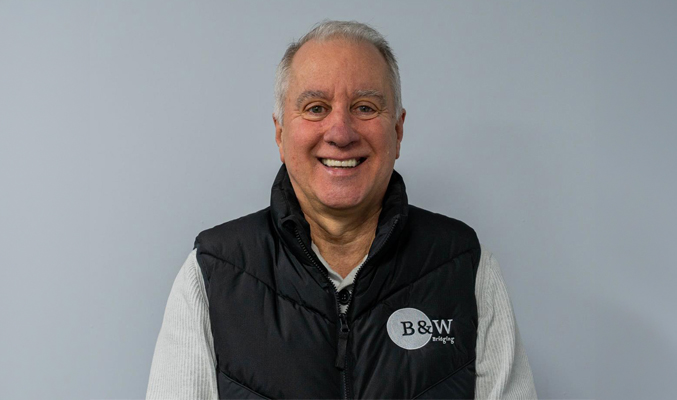Lenders’ deal dropping – ‘Without trust nobody is going to do any business’
By Laura Miller

You’ve filled your car up with petrol, gone to pay, and suddenly realised there’s not enough cash on your card or you’ve forgotten your wallet altogether. While finding your funding is missing on the petrol station forecourt is chronically embarrassing, when that happens in bridging lives can be completely upended.
“It doesn’t matter if it’s a £50,000 or a £5m bridge, if a deal collapses because the lender changes their mind or doesn’t have funding lines available the client is in a stressful position, especially if there is urgency to complete within a specific timeframe,” says Andrew Stewart, managing director at broker Orchard Financial Solutions.
There is no official data for how many deals lenders drop or decline – and strangely these do not make it onto the press releases they send out with great frequency announcing deals done. Stewart sees plenty of cases where lenders back out of promises to fund at the last minute “with no real explanation or they try to hide behind vague underwriting criteria”.
Lending has certainly been more constrained. According to MT Finance’s sector wide Bridging Trends data lending fell 45% in the first half of 2020, as a result of the general impact of Covid-19 on confidence and the national lockdowns halting activity. It’s latest data for Q3 2020 showed this starting to pick up again, from a low base, with a 46% rise in bridging loan volumes in the third quarter.
Coronavirus has worried lenders but brokers say the lack of transparency when deals fail was a source of frustration even before the pandemic. In the last 12 months Stewart had a lender walk away from an agreement the day prior to completion “because they claimed to have had their funding line stopped, only for us to discover they were still funding other deals”. His anger is palpable. Another case involved a private lender Stewart says he was introduced to through a trusted source.
“He sat in a meeting with our clients, agreed to fund a challenging deal and have funds in place and completion within five days. Five days came and went during which time the behaviour of the private lender can best be described as bonkers,” Stewart recalls. Needless to say the deal didn’t progress. “I’ve since heard of others having a similar experience with this individual,” he says.
On occasion the client hides something from the lender and when discovered all bets are rightly off. But when the client and broker do everything right only to get jilted at the altar, tensions can run high. Fees rack up whether the deal completes or not, often thousands of pounds. “The client is out of pocket for valuation and legal fees, which are considerable on larger deals”, says Stewart. “The frustration is having to explain to a client who has trusted you as a broker why the lender is not prepared to offer funding. The lender can walk away from the problem but the broker is left to pick up the pieces,” he says.
Walking away is exactly what some bridging lenders have been doing to ride out the coronavirus pandemic – one broker described lenders as being more jittery due to Covid-19 than even during the 2008 financial crisis – which is being seen by brokers as exasperating the already ongoing problem of suddenly cut funding lines. Last April, Together put all pre-offer applications on hold and customer affordability under review where offers had been made, including purchases where contracts had been exchanged. Vida Homeloans pulled out of lending in March and withdrew any pre-valuation cases. Both were out of the market for some time until coming back more recently.
“Funding certainty is incredibly important,” says Liz Syms, managing director at broker Connect Mortgages. “There are a large number of bridging lenders in a mainly unregulated market and brokers need to have confidence the lenders they recommend can deliver”.
She had a lender recently withdraw from a deal because it was reserving cash for development funding drawdowns. “Not all bridging funds are released on day one, some are released in stages as work is completed on a property, which would also be affected by funding issues,” she says.
Bridging lending is all about speed but average completion times have been pushed north by coronavirus and lockdown disruptions. According to Bridging Trends data in Q3 2020 it was taking 52 days to finish on a funding deal, two days more than in Q2, and higher than 2019 (51 days) and 2018 (46 days). When lenders pull out, speed is the first casualty. “Clients are looking for a bridge in a large percentage of cases for speed,” says Syms. “If a lender has a problem with their funding, having to start the process from scratch with another lender could mean losing the property and suffering significantly financially,” she says, with brokers left scrambling to find an alternative on what may be less generous terms.
Even when a loan completes, lenders with precarious funding arrangements can pass their self-created problem onto borrowers. In such cases “if the borrower has a hiccup with their plan they could find themselves under a lot of pressure from a lender who needs the money back”, Syms says. Smaller bridging lenders, for example, can be relying on other borrowers to repay their loans before they can lend again – if they have an existing loan that is not paid back to them on time it can affect their ability to lend on a new loan.
Wary brokers can ask for recent testimonials from lenders, or recommendations of law firms they work with. For Syms, using a solicitor who knows a lender is important to achieve a quick release of funds. “Good lenders should be able to give you details of solicitors they do business with who understand their products and requirements,” she advises. Also find out from the lender what the options are for a borrower who needs to extend their loan, as this can be an indicator of the pressure of funding.
Knowledge Bank’s activity tracker, which monitors mortgage criteria search terms, suggests homebuyers are under stress as the 31st March stamp duty holiday deadline looms, sending house prices to record highs and exasperating entrenched affordability problems. Brokers kept ‘maximum age at end of term’ in the top spot for the second month in the residential market, with ‘income multiple used for affordability assessment’ and ‘self-employed – 1 years accounts’ also in the top five. “People are clearly struggling with affordability and so are reassessing their income multiples as they desperately search for a way to get onto the housing ladder,” Knowledge Bank said.
At the same time, property listing website Rightmove found a staggering 28% of agreed house sales collapsed in December, up from 17% in July. Buyers are trying to complete deals before March end, but with the country in a third national lockdown the logistical strain is “unlike anything seen in recent memory, the rising demand has created a bottleneck, resulting in the conveyancing process being dramatically extended”, says David Hannah, founder of Cornerstone Tax. Other buyers are finding they can’t get loans as the pandemic has affected their careers and made lenders more wary of their mortgage offerings, he adds.
All this has increased demand for regulated bridging lending, which dominated the sector again in Q3 according to Bridging Trends, at 53% of borrowing. Lenders and brokers report being inundated with applications from already fraught homebuyers, for who certainty of funding is vital. “Established specialist lenders, with the criteria flexibility the client needs and large or multiple funding lines, are best”, says Connect Mortgages’s Syms. Orchard Financial’s Stewart points out some established lenders “can be a bit clunky, with layers of decision makers”, so boutique funders or private investors “also have a place as they can process a transaction quickly and be flexible with underwriting which is often needed”.
Stretton Capital is 100% funded by an ultra high net worth family who, according to Mark Harrison, director of business development, can lend up to £80m a year without the need for any outside funding. In the last few months of 2020 he says Stretton was approached by institutional investors for the first time. “Whilst there is no need for us to do so, it’s flattering to be asked and it’s not to say we won’t in the future as multiple lines of funding to compliment our own funds would put us in an even stronger position,” he acknowledges.
Harrison is a staunch defender of fair dealing by lenders.“No broker or borrower can ever commit themselves to a transaction if there is any doubt whatsoever in terms of funds being available,” he says.“Everyone who applies and gets approved for a loan by a lender expects their loan to proceed.” Sometimes it can fall down at the legal or valuation stage, he admits, “but what brokers and borrowers will find hard to accept is a lender stating they do not have the funds to lend after the process is underway”. Stretton rescued a deal just before Christmas when a crowdfunder was unable to fulfil their obligations with a borrower when they couldn’t raise enough from their investors, Harrison says.
He recommends brokers heavily probe the source, speed and reliability of a lender’s funding. “Ask, ‘who funds you?’ If the loan is being funded by a crowdfunder or peer-to-peer lender, ask them how long it usually takes to get a ‘pot’ filled up with investor money,” he recommends.
But Orchard Financial’s Stewart says the onus is on lenders to proactively improve their honesty with brokers, and their clients – and if they don’t, in an increasingly crowded market, brokers will simply refuse to do business with them. “You can ask a lender all the questions in the world, only for them to walk away or pull funding at the last minute,” he says.
“Bottom line is as a broker you need to trust what you are being told by a lender and question anything that doesn’t seem quite right. Without trust nobody is going to do any business.”

Laura Miller is a freelance journalist who writes about money and business. She regularly appears in UK national and trade newspapers and magazines, and has previously worked for ITV News and the Telegraph among others. Find her on twitter @thatlaurawrites










You must be logged in to post a comment.